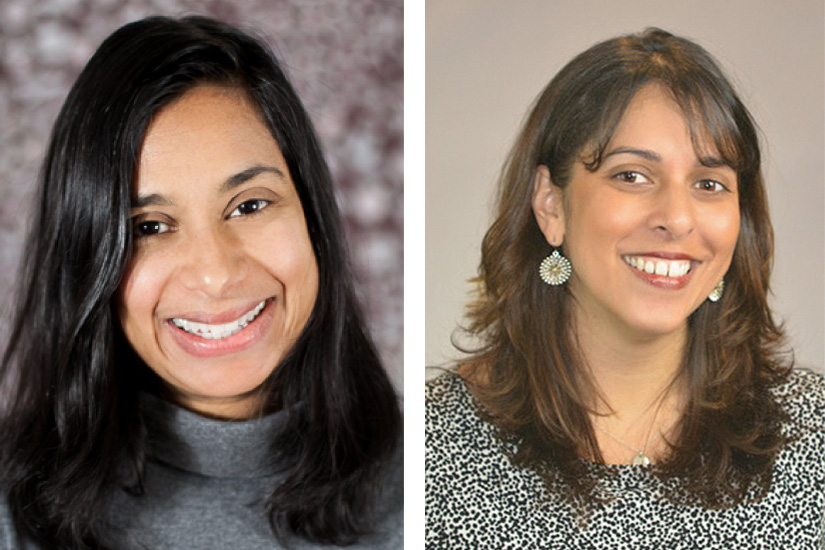WASHINGTON — The United Nations top investigator on torture has delivered a scathing criticism of juvenile justice practices common in the United States, including routine detention of youths, solitary confinement and sentences of life without parole for children.
In a presentation of his report to the U.N. Human Rights Council, Special Rapporteur Juan E. Méndez called on countries to rely on alternatives to detention, which he said should be a “last resort” for “exceptional cases” for the shortest possible period of time when in the “best interest of the child.”
“The detention of children is inextricably linked — in fact, if not in law — with the ill-treatment of children, owing to the particularly vulnerable situation in which they have been placed that exposes them to numerous types of risk,” Méndez told the Human Rights Council in Geneva.
The report said children deprived of liberty are at “heightened risk of violence, abuse and acts of torture or cruel, inhuman or degrading treatment or punishment."
Méndez, a 70-year-old torture survivor and a native of Argentina, did not single out the United States or any other country. But his 21-page report took direct aim at practices common in this country.
The report recommended that children:
- Never be tried in the adult criminal justice system, never be subjected to adult sentences and never be sentenced to life without parole for crimes committed as youths.
- Generally be kept separated from adults in detention and be allowed to be held together with adults during daytime hours only under “strict supervision.”
- Be able to maintain contact while in detention with the outside world, particularly families and legal representatives.
- Have access to educational, vocational and recreational opportunities and to green space when detained.
- Be subjected to use of restraints only as a last resort when all other options have been exhausted and a child poses an “imminent threat” to himself or herself.
- Should not be detained in law enforcement establishments for more than 24 hours.
- Never be subjected to police questioning without the presence of a lawyer.
- Have access to pediatricians and child psychologists knowledgeable about the effects of childhood trauma and to specialized medical screenings in places of detention to detect torture and ill treatment.
The report also said places of detention must respond to the specific needs of “groups of children that are even more vulnerable to ill treatment or torture” such as girls, lesbian, gay, bisexual and transgender children as well as children with disabilities.

Mishi Faruqee
Mishi Faruqee, juvenile justice policy strategist with the American Civil Liberties Union, said the U.N. report underscores the need for a fundamental shift in how the U.S. juvenile justice system treats children.
“The U.S. uses detention to a degree that you don’t see anywhere else in the world for young people,” Faruqee said. “For kids who are currently in the juvenile justice system, there’s a feeling that it’s OK for them to go to facilities that closely resemble adult prisons even though all the research says that that model has totally failed and sending these young people to these large, prison-like facilities produces horrible recidivism rates.”
She noted more states are moving toward the “Missouri Model,” emphasizing smaller, nonprison-like facilities closer to offenders’ homes, and that nationally, youth incarceration has declined by almost half in the past 15 years.
But Faruqee said on any given day, some 60,000 youths are in locked residential placement in the country, two-thirds of them for nonviolent offenses. (Some are placed in locked treatment facilities as opposed to prison-like detention centers.)
 “The message of this U.N. report is that even these so-called ‘treatment facilities’ are depriving a child of their liberty by removing them from their families, removing them from their community, and that in itself is intrinsically harmful for young people and intrinsically undermines their healthy development,” she said.
“The message of this U.N. report is that even these so-called ‘treatment facilities’ are depriving a child of their liberty by removing them from their families, removing them from their community, and that in itself is intrinsically harmful for young people and intrinsically undermines their healthy development,” she said.
Often, Faruqee said, youths are placed in locked facilities to get them services like mental health treatment that may be lacking in their communities or to get them away from a chaotic home life.
“We really need to dramatically reduce the number of young people who are detained, who are placed — whatever descriptive term you want to use — and really make sure that the supports and the services that those young people and their families need are available in their communities, and that should be the norm.”
Faruqee pointed to the nonprofit Youth Advocate Programs Inc. (YAP) as a model community-based program.
YAP, based in Harrisburg, Pa., provides community-based alternatives to out-of-home placements for troubled youths in 19 states, with interventions including intensive support for youths and their families in their homes, communities and schools.

Shaena Fazal
Shaena Fazal, national policy director for YAP, said she strongly supported the U.N. report’s recommendation that locked facilities should be a last resort for young offenders.
“I think the overarching thing is that we have to overcome our institutional bias for detention and incarceration and instead have a bias for families and communities as the best way to achieve youths’ well-being,” Fazal said.
Advocates at YAP work with youths and their families on a wide range of needs, including education, health and mental health, aimed at building on kids’ strengths.
YAP focuses heavily on strengthening families.
“We know that kids always gravitate back to their natural families regardless of what has happened in the home, and so the onus is on us to really make that family stronger and a supportive system for the youth,” Fazal said.
She said research shows children who are in conflict with the law are “frequently expressing some type of hurt or behavioral issue, and they need us to help them and not to punish them” when possible, without resorting to incarceration.

Pingback: UN Report Faults Practices Common in U.S. Juvenile Justice; News Roundup | Reclaiming Futures